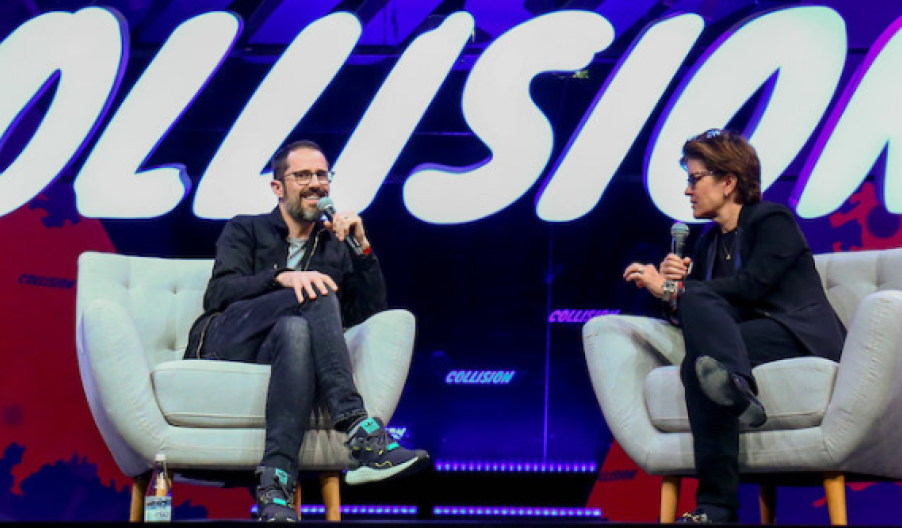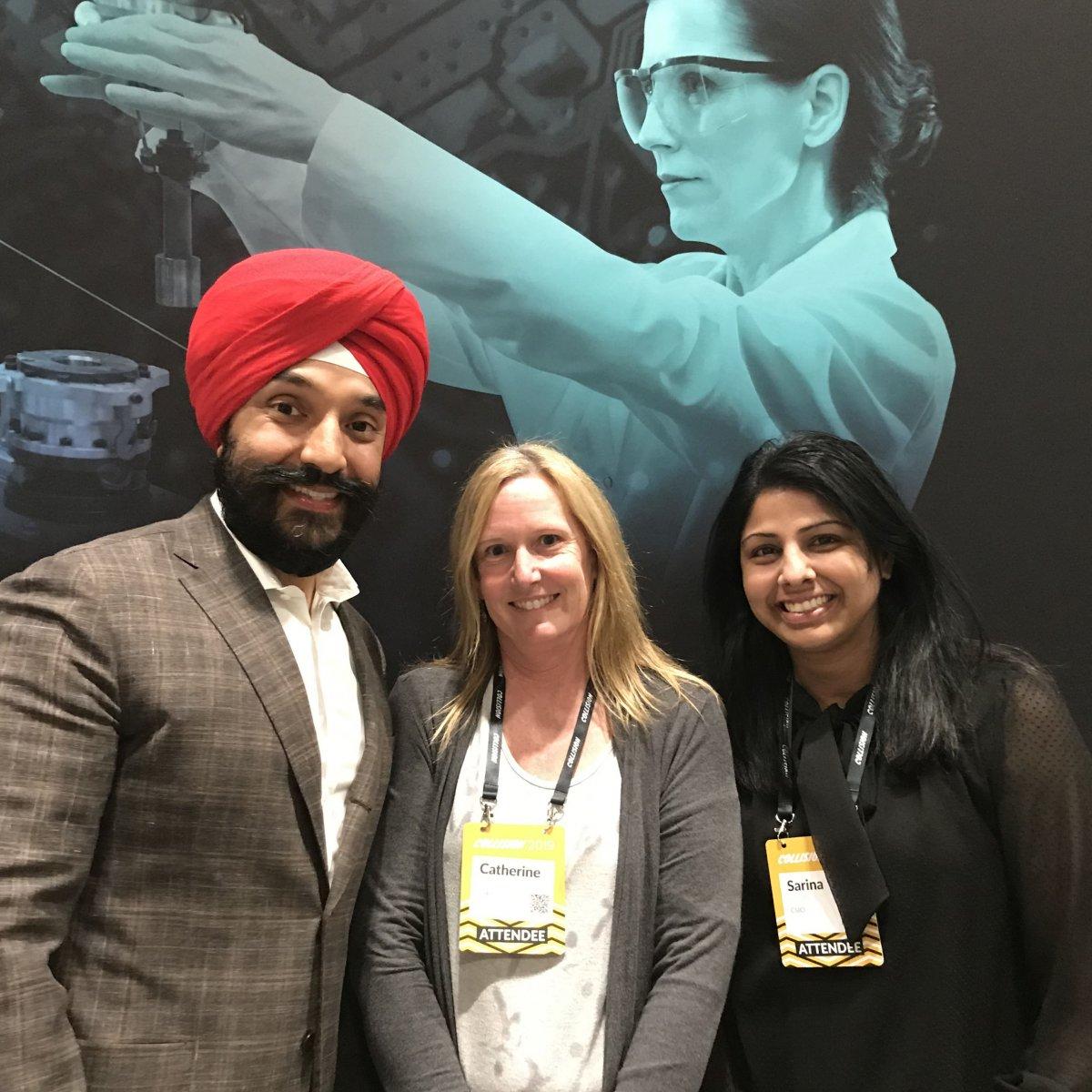Collision Conference Brings Together the Global Digital Community
|

The Collision Conference — North America’s fastest-growing digital conference — took place May 20 to 23 and CSIO was there to hear about the latest trends in digital innovation. Taking place in Toronto for the first time, the event saw over 700 speakers and 25,000 participants attend from 125 countries across the globe.
The sessions and speakers spanned numerous industries, from financial services, to health to education, academia, and more. Speakers included Microsoft’s Executive Vice-President Peggy Johnson, Shopify’s CEO Tobias Lütke, Dan Doctoroff, CEO of Sidewalk Labs, and Rola Dagher, President of Cisco Canada. Prime Minister Justin Trudeau kicked off the conference highlighting Canada’s growing tech sector.
Artificial Intelligence (AI), the role of Fintechs/Insuretechs, and Regulation and Innovation were consistent themes throughout the conference.

Artificial Intelligence
Many of the sessions focused on AI and its impact on transforming business and our daily lives as both consumers and private citizens. Speakers looked at the many challenges posed by AI, including: teaching computers context, ensuring data is free of bias, and the volume of data needed for machine learning. CSIO member Element AI is dedicated to democratizing AI: its CEO Jean-François Gagné was at Collision discussing ethics, AI and business. “It depends how you think about your business,” said Gagné. “I think about my business as bringing good to my customers and users. I want them to trust my systems, and I want their customers to trust us.”
Several experts on self-driving cars spoke about both their projects and the future of autonomous cars. Dimitri Dolgov, CTO and VP, Engineering of Waymo described its focus as building a better driver to reshape transportation broadly. He spoke on Waymo’s journey from its beginnings a decade ago as a Google project, to putting the first self-driving car on public roads in 2015, to launching a fleet of fully autonomous cars in Phoenix in 2018. Other speakers included Zaki Fasihuddin, CEO of Volvo Cars Technology, and Christopher Heiser, CEO of Renovo, an automotive software company focused on building products for the global commercialization of autonomous vehicle fleets.
Digital Innovation in Financial Services, including Fintechs, Insuretechs
While financial services and insurance companies face unique challenges in innovating, some of the largest banks have found success in their digital transformation. Robert Alexander, CIO of Capital One described how they radically changed the customer experience by transforming the DNA of the business to be digital first, including migrating to the cloud, eliminating data centres, and moving to 100% agile. “The better decisions we can make with real time data, the better our organization,” says Alexander.
Several sessions focused on how industry giants and startups are collaborating, including RBC Ventures, a division within RBC dedicated to startups that add value to their customers’ everyday lives, and Sun Life’s Lumino, a program that showcases digital health startups to all Canadians. In a panel on how AI can transform the financial sector, Tomi Poutanen, Chief AI Officer of TD Bank described the situation as needing to become them, before they become you: “We don’t see fintech as a threat, we see them as a partner.”
Regulation and Innovation
One of the critical issues that speakers highlighted is the intersection of data, privacy and innovation. The federal Innovation Minister Navdeep Bains was at Collision to discuss the government’s new Digital Charter. “The defining question is how do we protect our data when innovation and our economy is driven by it,” said Minister Bains. “We need to build our society on a foundation of trust. The Digital Charter is based on Canadian values, with strong enforcement mechanisms that allow business to innovate and citizens to be able to trust them.”
In a panel discussion on balancing innovation and regulation, the Hon. E. David Burt, Premier of Bermuda, called for strict regulation of fintechs and the need to safeguard data in light of inevitable cyberattacks.

One of the conference highlights was the opportunity to start each morning and afternoon with four-minute pitch presentations from some of the top early and growth stage startups. These exciting companies are supported by some of the world’s leading investors, and include Inscribe, which detects fraud in business applications within seconds. When a business receives a form, the API can examine the forms for tampering, verifies the information provided and checks for patterns of fraud.
In fact, over 1,100 startups were represented at the conference, a significant 83% more than last year. This is the first time the conference is being held outside of the U.S., Toronto will be hosting the event until 2021. Attracting a global digital conference of this scale is due in no small part to Toronto’s tech industry, according to Mayor John Tory, who spoke at the opening night session. “Toronto's technology and innovation sector is growing at a phenomenal rate,” said Tory. “Collision will have a huge economic impact on our city and will help us build on that success."